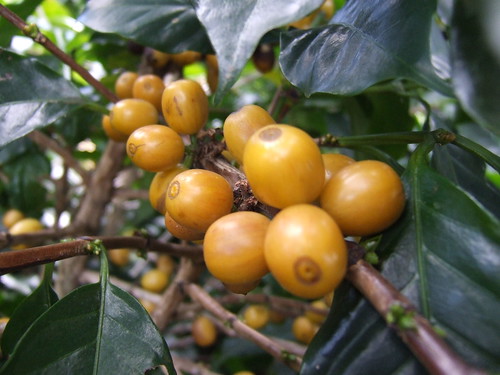
Note: This is an introduction to what I hope will be several essays about direct-trade coffee.
Thunderbird is committed to using only direct-trade coffee of the highest quality. Phrases like "fair trade," "direct trade," "farm trade," and "direct relationship coffee" have a lot of power, and they're often thrown around to give the roaster or coffee shop legitimacy. But what do they really mean? How can you tell what's "real" about a coffee shop or roaster's buying methods?
In short, direct relationship coffee ". . . takes a substantial investment of time and money to build a business based on working directly with farmers. It also takes an infrastructure to allow someone to be out of the office a total of several months over the course of the year," according to Mike McKim at Cuvee Coffee Roasters. [Read Mike's discussion of direct-trade coffee here.] It's not just a two-day trip and a snapshot with a farmer. It's about building a legitimate relationship relationship between a roaster and a farm or grower, and it's not something that happens overnight.
Keep checking our blog to learn more about how direct-trade coffee works! For now, a New York Times article from 2007 may stir up some more interest.



1 comment:
Free trade coffee is beneficial in more ways than one, and it has also been becoming a trend for the past 10 years. With direct trade coffee, a wholesale coffee distributor provides coffee that were harvested and processed in the greenest, eco-friendly way. Wholesale coffee distributors also help in rewarding the hardworking farmers and growers, keeping the industry robust and sustainable.
In effect, wholesale coffee suppliers help the farmers in keeping their livelihood thriving. Healthy livelihood, best beans, perfect cup.
Post a Comment